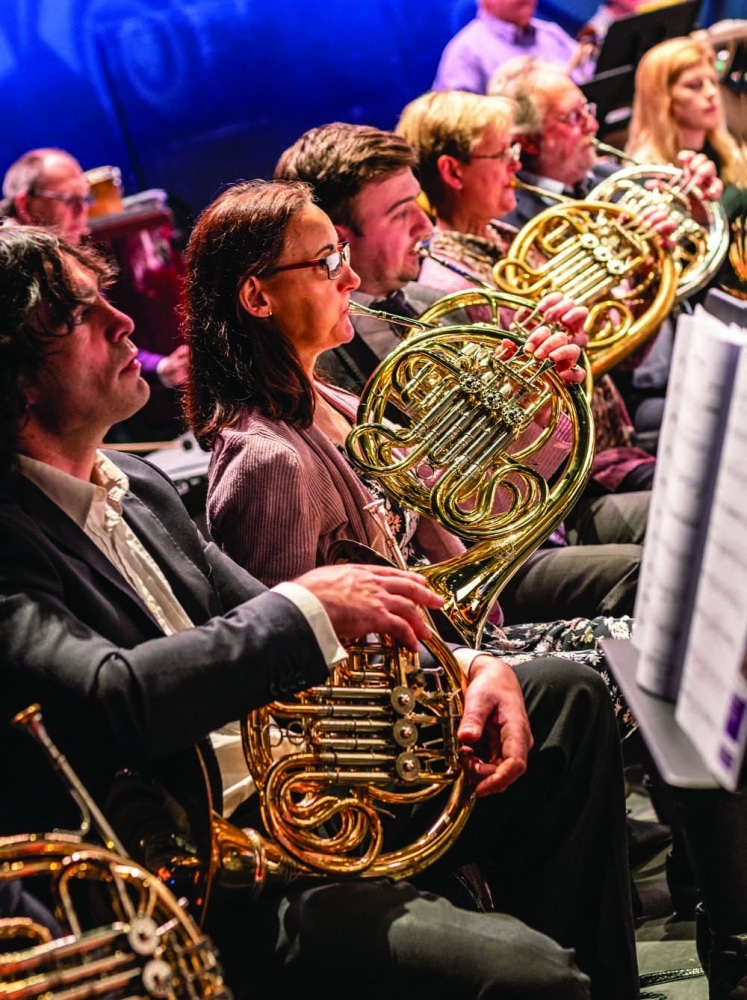What is on the programme for the Royal Tunbridge Wells Symphony Orchestra
[RTWSO] Opera Gala on February 2?
Some of the most thrilling, popular and well-known music from the operatic repertoire. Arias, duets and quartets from Madam Butterfly, Carmen, Rigoletto, La Traviata, Faust, Don Giovanni, and many more besides.
Is it always a challenge to decide upon a concert’s content and running order?
Yes, but only because there is such a huge amount of great music from opera to choose from. What to leave out of the programme is always the biggest problem.
Do you aim to always have a good variety of music for your audience to enjoy?
Of course, variety is so important in a gala like this. This sort of concert is a very theatrical occasion, more than a standard symphony concert, so we always aim to take the audience on a complete emotional journey, from tears to laughter and everything in between.
Are there any particularly special pieces you will be performing?
All of the music is special, in that all of the pieces are jewels of the operatic repertoire. But there are some that are particularly emotionally charged, like the great Love Duet from Madam Butterfly, or the duet for tenor and baritone from the Pearl Fishers – a firm favourite on Desert Island Discs! Carmen is also a really popular opera, and we have plenty from that, including the famous Toreador Song, so it’s actually quite difficult to say what would be particularly special. It’s all rather special!
Will there be any guests making an appearance?
We have four fabulous opera singers with us: Susana Gaspar, Cátia Moreso, Jung Soo Yun and David Stephenson, all of whom sing regularly with many of the major opera houses and companies around the world, so the standard of the singing will be first rate.
You have also performed with the BBC Concert Orchestra. Can you tell us about your highlights?
That’s a very hard question. I was a frequent guest conductor on Friday Night is Music Night for the BBC over a 25-year period, during which time I conducted around 200 broadcasts of the programme.
To pick out musical highlights from literally thousands of pieces of music over that time would be impossible.
However, I often say that one of the greatest privileges was to work alongside some of the greatest presenters and broadcasters in radio history – like Robin Boyle, Richard Baker, David Jacobs, and more recently Ken Bruce, all of whom I am lucky enough to count amongst my friends, although sadly the first three are no longer with us. They all brought something very special to the world’s longest running live music show.
What are the fundamental differences between putting on an RTWSO concert and a BBC one?
With an organisation like the BBC you enjoy the support and backup of a huge and well-funded professional organisation. With the RTWSO, which is a more local group of both professionals and very gifted amateur players, we rely very heavily on our wonderful volunteers, who do a brilliant job of managing and supporting the orchestra on very slim budgets.
High quality classical music is expensive to produce, so we are always looking for more financial support from local businesses and sponsors to help support the high quality work.
What do you think the audience will enjoy most about the Opera Gala?
The ‘theatre’ of the occasion, definitely, and the electrifying emotional atmosphere that this wonderful opera music produces in the hall, every time, and without fail!
What are the RTWSO’s plans for the rest of 2020?
We still have another three concerts left in our 2019/20 season, with great soloists like the pianist Martin James Bartlett and violinist Thomas Gould. We have fabulous music by Brahms, Beethoven, Mozart and Bruckner, and of course all eyes and thoughts are focusing already on our 2020/21 season, and then 2022 – which will be the orchestra’s 100th anniversary year.
Full details of all future programmes, and how musicians can audition for the RTWSO, can be found at rtwso.org








